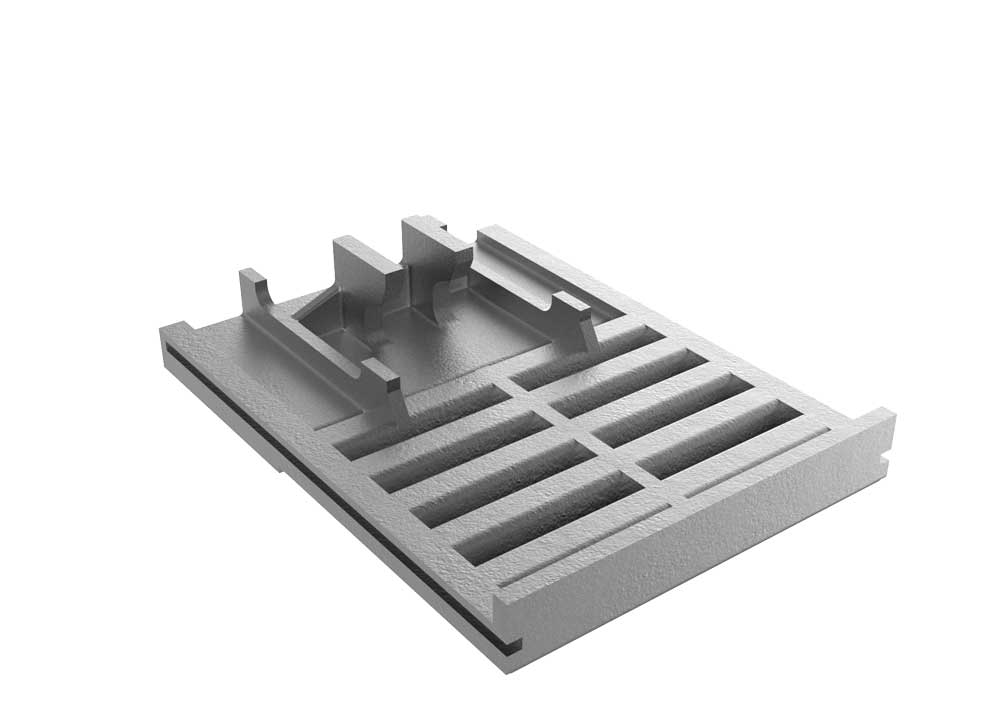Refractory Steels


Refractory steel and its properties
Heat-resistant steel refers to a group of steel alloys that are capable of maintaining their mechanical strength and chemical stability at high temperatures. This unique feature makes heat-resistant steels one of the primary choices for applications requiring optimal performance under thermal stress and in corrosive environments. The chemical composition of these steels includes key alloying elements such as chromium, nickel, molybdenum, and silicon, each of which plays a vital role in enhancing their thermal and mechanical properties.
Chromium contributes significantly to oxidation resistance by forming a protective chromium oxide layer on the steel surface. This layer prevents further oxidation at elevated temperatures, helping preserve the structure and properties of the steel. Nickel, another important element in these alloys, greatly improves creep resistance and the mechanical performance of the steel under high-temperature conditions. Molybdenum and silicon also enhance the overall performance by increasing strength and corrosion resistance.
These exceptional properties have led to the widespread use of heat-resistant steels in various industries that operate under high temperatures and corrosive conditions. Common applications include the manufacturing of furnace components, gas and steam turbines, and equipment used in the chemical industry. In such applications, resistance to heat, creep, and oxidation is critically important, and heat-resistant steels play a key role in ensuring the efficiency and durability of equipment.
In summary, heat-resistant steels, with their unique combination of mechanical and chemical properties, are an ideal choice for demanding operational conditions and high-temperature environments, holding a special place in advanced and high-performance industries.
| Steel Grade | C (%) | Cr (%) | Ni (%) | Si (%) | Mn (%) | Other Elements (%) | Temperature Limit (°C) |
| AISI 309 | 0.2 max | 22-24 | 12-15 | 0.75 max | 2.0 max | – | ~1100 |
| AISI 310 | 0.25 max | 24-26 | 19-22 | 1.5 max | 2.0 max | – | ~1200 |
| AISI 446 | 0.20 max | 23-27 | – | 0.50 max | 1.5 max | – | ~1050 |
| 1.4841 (310S) | 0.02 max | 24-26 | 19-22 | 1.5 max | 2.0 max | – | ~1150 |
| AISI 321 | 0.08 max | 17-19 | 9-12 | 0.75 max | 2.0 max | – | ~850 |
| AISI 347 | 0.08 max | 17-19 | 9-13 | 0.75 max | 2.0 max | Nb: 10xC min, 1.0 max | ~900 |
| Inconel 600 | 0.15 max | 14-17 | 72 min | 0.50 max | 1.0 max | Fe: 6-10 | ~1150 |
| Inconel 625 | 0.10 max | 20-23 | 58 min | 0.50 max | 0.50 max | Mo: 8-10, Nb: 3.15-4.15 | ~980 |
| AISI 253MA | 0.05-0.10 | 20-22 | 10-12 | 1.4-2.0 | 0.8 max | N: 0.14-0.20, Ce: 0.03-0.08 | ~1150 |
| Alloy 601 | 0.10 max | 21-25 | 58-63 | 0.50 max | 1.0 max | Al: 1.0-1.7 | ~1200 |
| HK40 | 0.35 max | 24-26 | 19-22 | 1.50 max | 2.0 max | – | ~1100 |
| HP40 | 0.40 max | 24-27 | 33-37 | 1.00 max | 1.50 max | – | ~1200 |
| 1.4958 (Alloy 800H) | 0.05-0.10 | 19-23 | 30-35 | 1.0 max | 1.5 max | Al: 0.15-0.60, Ti: 0.15-0.60 | ~1100 |
| Alloy 825 | 0.05 max | 19.5-23.5 | 38-46 | 0.50 max | 1.0 max | Mo: 2.5-3.5, Cu: 1.5-3.0, Ti: 0.6-1.2 | ~1000 |
| 1.4724 | 0.10-0.20 | 11-13 | – | 1.5-2.0 | 0.8 max | Al: 0.70-1.30 | ~850 |
| 1.4742 | 0.10-0.20 | 17-19 | – | 1.5-2.5 | 0.8 max | Al: 0.70-1.20 | ~950 |
| 1.4828 | 0.20 max | 19-21 | 11-13 | 1.5-2.0 | 0.8 max | – | ~1100 |
| 1.4876 | 0.08 max | 19-23 | 30-35 | 1.0 max | 1.5 max | Al: 0.15-0.60, Ti: 0.15-0.60 | ~1100 |
| Alloy 718 | 0.08 max | 17-21 | 50-55 | 0.35 max | 0.35 max | Mo: 2.8-3.3, Nb+Ta: 4.75-5.50, Ti: 0.65-1.15 | ~980 |
| 1.4961 | 0.05-0.10 | 15-17 | 12-14 | 0.3-0.6 | 1.5 max | – | ~1100 |
| AISI 304 | 0.15 max | 18-20 | 8-10.5 | 1.0 max | 2.0 max | – | ~800 |
| AISI 304L | 0.03 max | 18-20 | 8-12 | 1.0 max | 2.0 max | – | ~800 |
| AISI 316 | 0.08 max | 16-18 | 10-14 | 1.0 max | 2.0 max | Mo: 2-3 | ~850 |
| AISI 316L | 0.03 max | 16-18 | 10-14 | 1.0 max | 2.0 max | Mo: 2-3 | ~850 |
| AISI 308 | 0.08 max | 19-21 | 10-12 | 1.0 max | 2.0 max | – | ~850 |
| AISI 420 | 0.15-0.45 | 12-14 | – | 1.0 max | 1.0 max | – | ~750 |
| 1.4848 | 0.3-0.5 | 24-26 | 19-22 | 1.0-2.5 | 0.5-1.5 | – | ~1150 |
| 1.4841 | 0.2max | 24-26 | 19-22 | 1.5 max | 2.0 max | – | ~1150 |
| 1.4828 | 0.20 max | 19-21 | 11-13 | 1.5-2.0 | 2.0max | – | ~1100 |
| 1.4837 | 0.3-0.5 | 24-26 | 11-14 | 1.0-2.5 | 0.5-1.5 | – | ~1150 |
| 1.4823 | 0.3-0.5 | 25-28 | 3.5-5.5 | 1.0-2.5 | 0.5-1.5 | – | ~1100 |
| 5830* | 0.70-0.90 | 24-26 | 2.5-3.5 | 1.0-2.0 | 0.6-1.0 | – | ~1000 |
Produced Materials
Download catalog
Sepahan Foolad Atashgah Casting Industries Company, with over 30 years of experience in the casting industry, is committed to self-sufficiency by leveraging skilled personnel and experienced managers. The company proudly serves various industries, including steel, copper, mining, cement, and their related sectors, as well as producing cast iron balls required by different industries.
Address
Isfahan – Najafabad – Najafabad Industrial Park 2 – Sanat Square – Doctor Hesabi Blvd – Sub-corner 28


